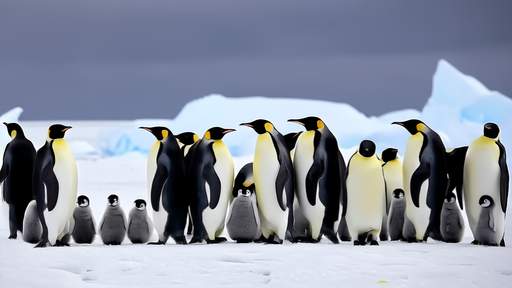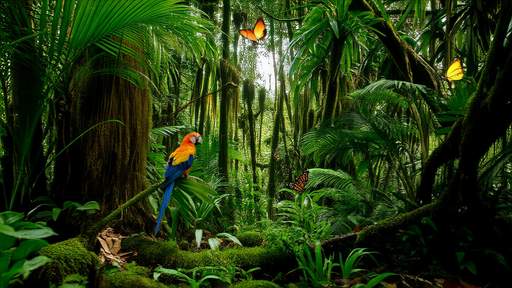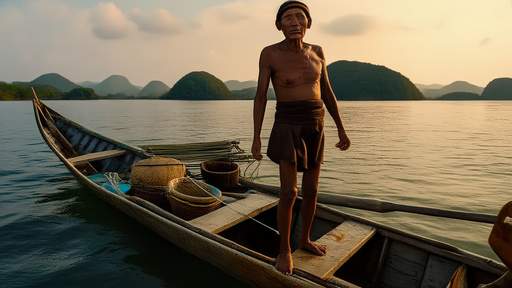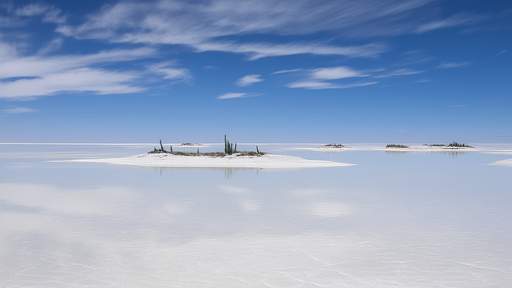The Mergui Archipelago, a sprawling collection of over 800 islands off the southern coast of Myanmar, remains one of Southeast Asia’s last untouched marine paradises. Here, the Moken people, often referred to as the "sea gypsies," have thrived for centuries, living in harmony with the ocean. Their unique way of life, particularly their extraordinary freediving techniques for hunting and gathering, offers a fascinating glimpse into a culture deeply intertwined with the sea.
The Moken are nomadic sea dwellers, spending most of their lives on traditional wooden boats known as kabang. These vessels serve as both homes and transportation, allowing the Moken to navigate the archipelago’s turquoise waters with ease. Unlike many modern societies, the Moken rely almost entirely on the ocean for sustenance, using their unparalleled diving skills to harvest fish, shellfish, and other marine resources. Their ability to dive to impressive depths without scuba gear is not just a survival skill—it’s a testament to their profound connection with the underwater world.
What sets the Moken apart is their remarkable physiological adaptation to freediving. Studies have shown that Moken divers can suppress their heart rates and constrict blood vessels to conserve oxygen, allowing them to stay submerged for minutes at a time. Their eyesight underwater is also unusually sharp, a trait that aids in spotting prey in the often-murky depths. These adaptations are not genetic miracles but the result of a lifetime of training, beginning in early childhood. By the age of five, many Moken children can dive several meters to collect shellfish, and by adolescence, they are capable of diving to depths of 20 meters or more.
The Moken’s fishing techniques are as sustainable as they are effective. They use simple tools like spears, nets, and handheld traps, avoiding the destructive methods employed by commercial fishing operations. One of their most distinctive practices involves diving for sea cucumbers, a delicacy in many Asian markets. Using nothing but a wooden pole to probe the seabed, they locate their prey and carefully extract it by hand. This low-impact approach ensures that marine ecosystems remain intact, a stark contrast to the overfishing and habitat destruction seen in other parts of the world.
Despite their deep knowledge of the sea, the Moken face increasing threats from the outside world. The rapid expansion of tourism and commercial fishing in the Mergui Archipelago has disrupted their traditional way of life. Many Moken have been forced to settle on land, often in impoverished conditions, as their fishing grounds are encroached upon by outsiders. Climate change, too, poses a significant challenge, with rising sea levels and unpredictable weather patterns making their nomadic existence more difficult. The younger generation, lured by the conveniences of modern life, is increasingly abandoning the old ways, putting centuries of maritime wisdom at risk of being lost forever.
Efforts to preserve Moken culture and their diving traditions are underway, albeit on a small scale. NGOs and researchers are working to document their knowledge, from navigation techniques to marine resource management, before it disappears. Some eco-tourism initiatives now offer travelers the chance to learn about Moken culture firsthand, providing a source of income that doesn’t rely on destructive practices. However, the future of the Moken remains uncertain. As the world continues to encroach on their ancestral waters, the survival of these sea nomads—and their extraordinary diving heritage—hangs in the balance.
The story of the Moken is a poignant reminder of the fragile relationship between humans and the natural world. Their ability to thrive in harmony with the ocean, using nothing but their wits and physical prowess, is a lesson in sustainability that modern societies would do well to heed. Whether their traditions will endure in the face of relentless change is a question only time can answer, but one thing is certain: the Moken’s legacy as masters of the sea will not be forgotten.

By /Jun 5, 2025

By /Jun 5, 2025

By /Jun 5, 2025

By /Jun 5, 2025

By /Jun 5, 2025

By /Jun 5, 2025

By /Jun 5, 2025

By /Jun 5, 2025

By /Jun 5, 2025

By /Jun 5, 2025

By /Jun 5, 2025

By /Jun 5, 2025

By /Jun 5, 2025

By /Jun 5, 2025

By /Jun 5, 2025

By /Jun 5, 2025

By /Jun 5, 2025

By /Jun 5, 2025

By /Jun 5, 2025

By /Jun 5, 2025